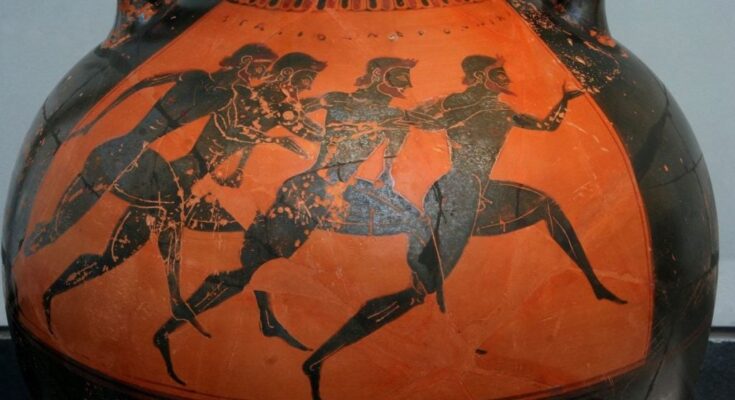
Messengers played a vital role in the communication and administration of the Ancient Greek world. They helped to maintain contact between different cities and states, and to spread news and information.
The history of the postal service is several millennia old. A postal message appeared about five thousand years ago in Mesopotamia for the first time to transmit information imprinted as a clay letter.
However, one of the most significant rounds of messaging system development was in Ancient Greece.
Ancient Greek messengers and postal service
In the era of ancient Greece, the postal system exhibited a notable degree of advancement through its wide network of land and sea communication. However, its progress was slowed down by numerous surrounding warring cities and states. In such a backdrop, the transmission of crucial messages relied heavily on foot messengers.
During excavations, archaeologists identified well-preserved images of messengers distributing papers and scrolls for high-ranking persons.
In ancient Greece, messengers were called hemerodrome, which meant “day courier.” They were equipped with darts and were famous for their remarkable running speed.
Such couriers could cover a distance of fifty-five stades within an hour, equivalent to approximately ten kilometers or 6.2 miles. A typical journey spanned around four to five hundred stades.
At the same time, the ancient Greeks employed a distinctive method for message transmission. They utilized a form of stick writing that exhibited hints of encryption.
In employing this writing technique, a strip of leather was initially wrapped around a stick. Subsequently, messages were inscribed onto this leather surface along the length of the stick. The text was imprinted from the top down, resulting in several rows of letters being created simultaneously.
Honorable mission
When it comes to the perspective on this demanding occupation, messengers in Greece held the highest level of honor and reverence.
Unlike in Persia, where letters were transmitted by a chain of messengers, the Greek approach was quite different. The Greek practice involved a single messenger carrying the message from its origin to the final destination. There was an unwritten law that no one attack or steal from the messenger due to the high importance of his mission.
In relation to the Olympic Games, it was common for messengers to participate and become champions themselves. Conversely, the champions of the Games frequently found themselves taking on the role of the messenger afterward.
Outstanding ancient Greek messengers
One of the most outstanding messengers in ancient history was Euchid, who gained fame for his journey following the Battle of Salamis in 480 BC. It is believed that he covered an impressive distance of nearly 124.2 miles within a single day, making his way to Delphi to secure the sacred fire.
As documented by the ancient Greek historian and mythographer Diodorus, a commander within Alexander the Great’s ranks maintained a corps of messengers. When carrying out orders, they relied on camels for their expedient communication.
Among the messengers of ancient times, none gained greater renown than Pheidippides. His name is intertwined with a legendary tale wherein he journeyed from Marathon to Athens to deliver news of the Greeks’ triumph over the Persians. Covering a distance of around 150 miles in a single day, Pheidippides completed this feat. Upon reaching the city, he conveyed the victory verbally to the people and promptly passed away.
Modern Greek Post
The creation of a modern postal service in Greece took place in 1828 after the country gained independence. By 1861, the number of post offices had increased to ninety-seven.
In 1875, Greece became one of the founding members of the Universal Postal Union. The Greek State Postal Service continued to deliver mail and later issued postage stamps until 1970. Subsequently, it was succeeded by the company Hellenic Post S.A., abbreviated as ΕΛΤΑ in Greek. This company remains the official postal operator of Greece to this day.



